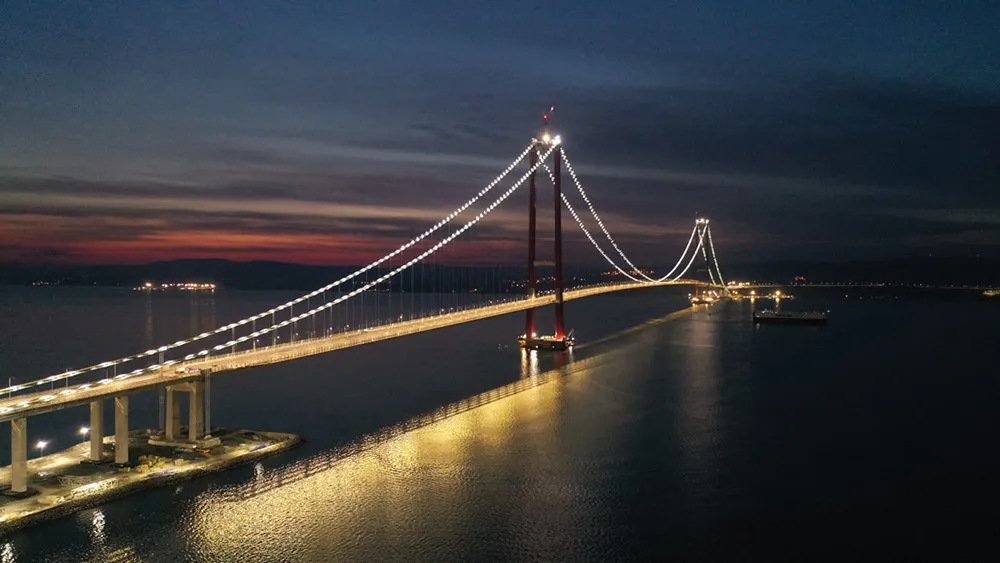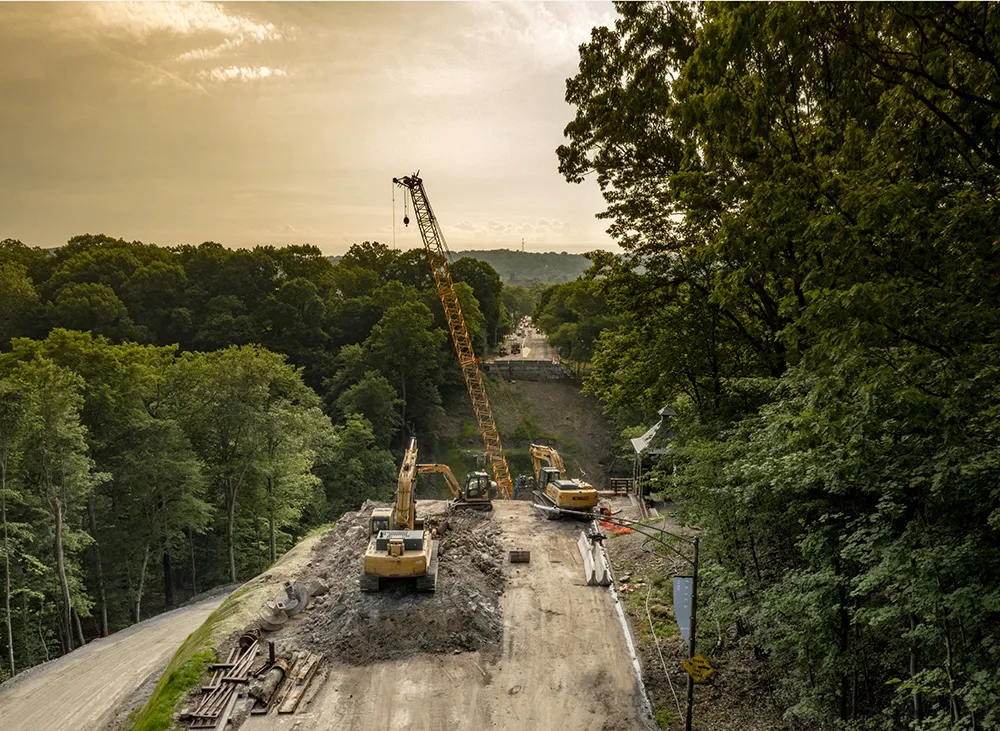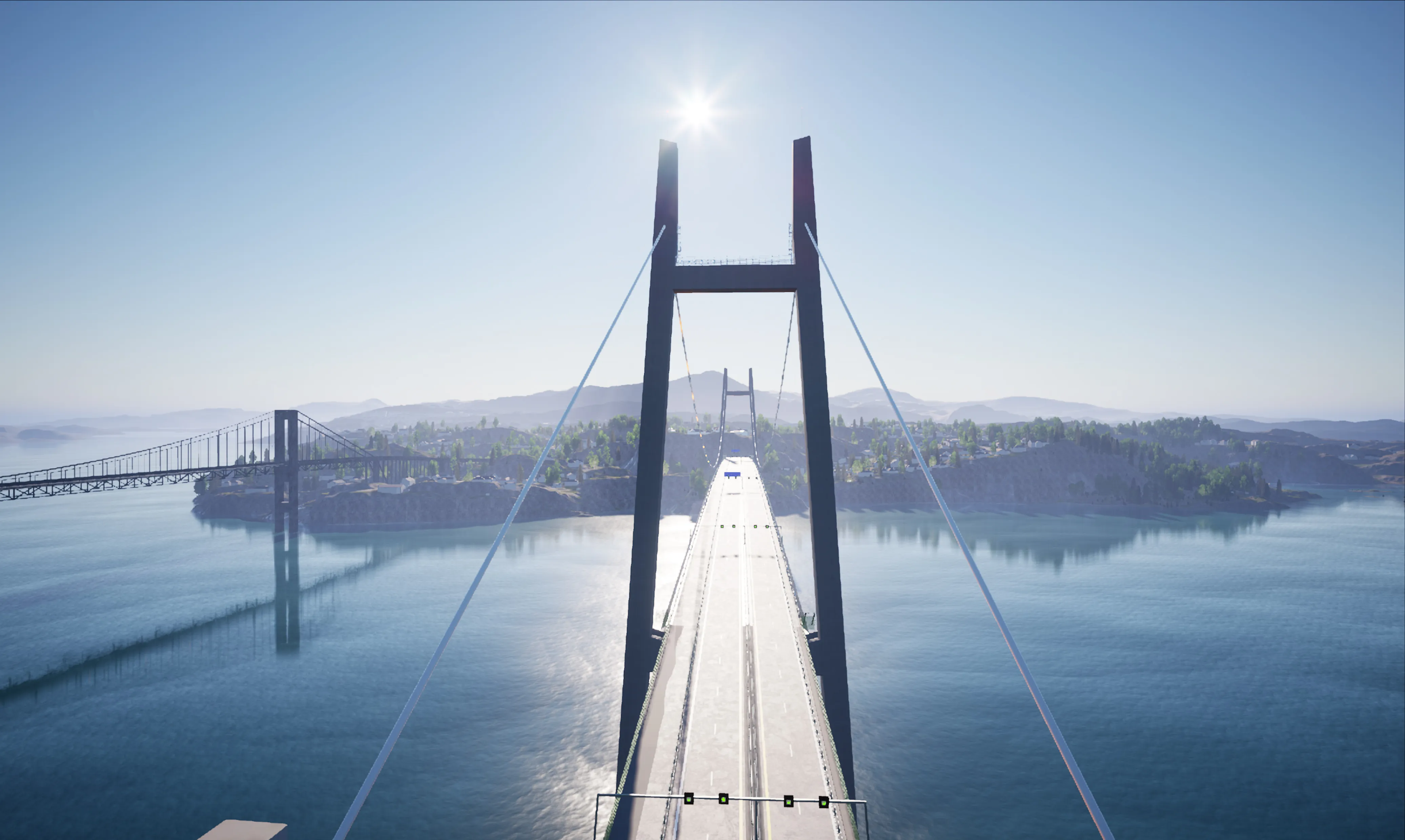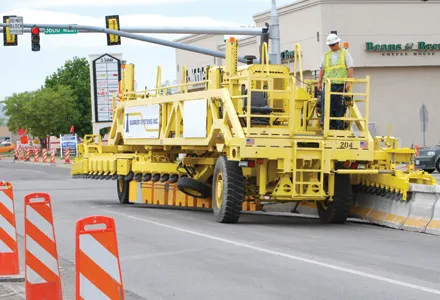
In addition to linking the two shores, the bridge also is ambitions to connect Turkey’s past and future. The steel structure is named after the Canakkale battle, a decisive naval victory, regarded today as a key milestone towards the foundation of the modern Turkish Republic in 1923. Even the bridge’s dimensions offer a nod to history: the mid-span stretch stands at 2,023m, symbolising the centenary of the founding of the Turkish Republic, while the towers stretch to a height of 318m above sea level, marking the exact date of the 1915 battle.
The bridge and the 88km Malkara-Çanakkale Motorway which leads to it represent a mega-scale transformative investment for Turkey and its neighbours by contributing to the realisation of an uninterrupted trade route from Beijing to London.
The six-lane road will cut down the crossing of the Strait, which can be as long as five hours depending on the ferry queues, to just six minutes.
The project is expected to deliver an enormous contribution to Turkey’s economy by producing an economic value equivalent to €5.3 billion and by generating upwards of 118,000 jobs. The bridge will save also €415 million for Turkey each year from a reduction in fuel consumption and carbon emissions.
 The project is also notable for its funding arrangements. It was tendered by Turkey’s Ministry of Transport and Infrastructure using a Build-Operate-Transfer model. Financial agreements were achieved with 25 financial institutions from 10 countries on 16 March 2018, securing a 15-year term loan with a grace period of 5 years, for a total sum of €2.265 billion. The Korean export credit agency and Korea Trade Insurance Corporation participated in the financing with a loan of €1 billion in cash and guarantees, the largest credit package ever received by a project in Turkey. Among other organisations that have provided cover are the Danish export credit agency EKF and the Islamic Development Bank (IDB).
The project is also notable for its funding arrangements. It was tendered by Turkey’s Ministry of Transport and Infrastructure using a Build-Operate-Transfer model. Financial agreements were achieved with 25 financial institutions from 10 countries on 16 March 2018, securing a 15-year term loan with a grace period of 5 years, for a total sum of €2.265 billion. The Korean export credit agency and Korea Trade Insurance Corporation participated in the financing with a loan of €1 billion in cash and guarantees, the largest credit package ever received by a project in Turkey. Among other organisations that have provided cover are the Danish export credit agency EKF and the Islamic Development Bank (IDB).
The four delivery companies (Limak and Yapı Merkezi from Turkey, DL E&C and SK Ecoplant from South Korea) contributed to the project by allocating their particular technical expertise acquired in diverse projects across the world, mobilising up to 4,000 engineers since construction began in March 2017.
Receiving the IRF Global Road Achievement Award in the Project Finance & Economics category, Turkey’s Ministry of Transport & Infrastructure, HE Adil Karaismailoglu noted, “I am sure that the bridge’s outstanding technical and financial features will be a great source of inspiration for future projects all over the world. In this respect, we are sincerely grateful for this invaluable recognition.”









